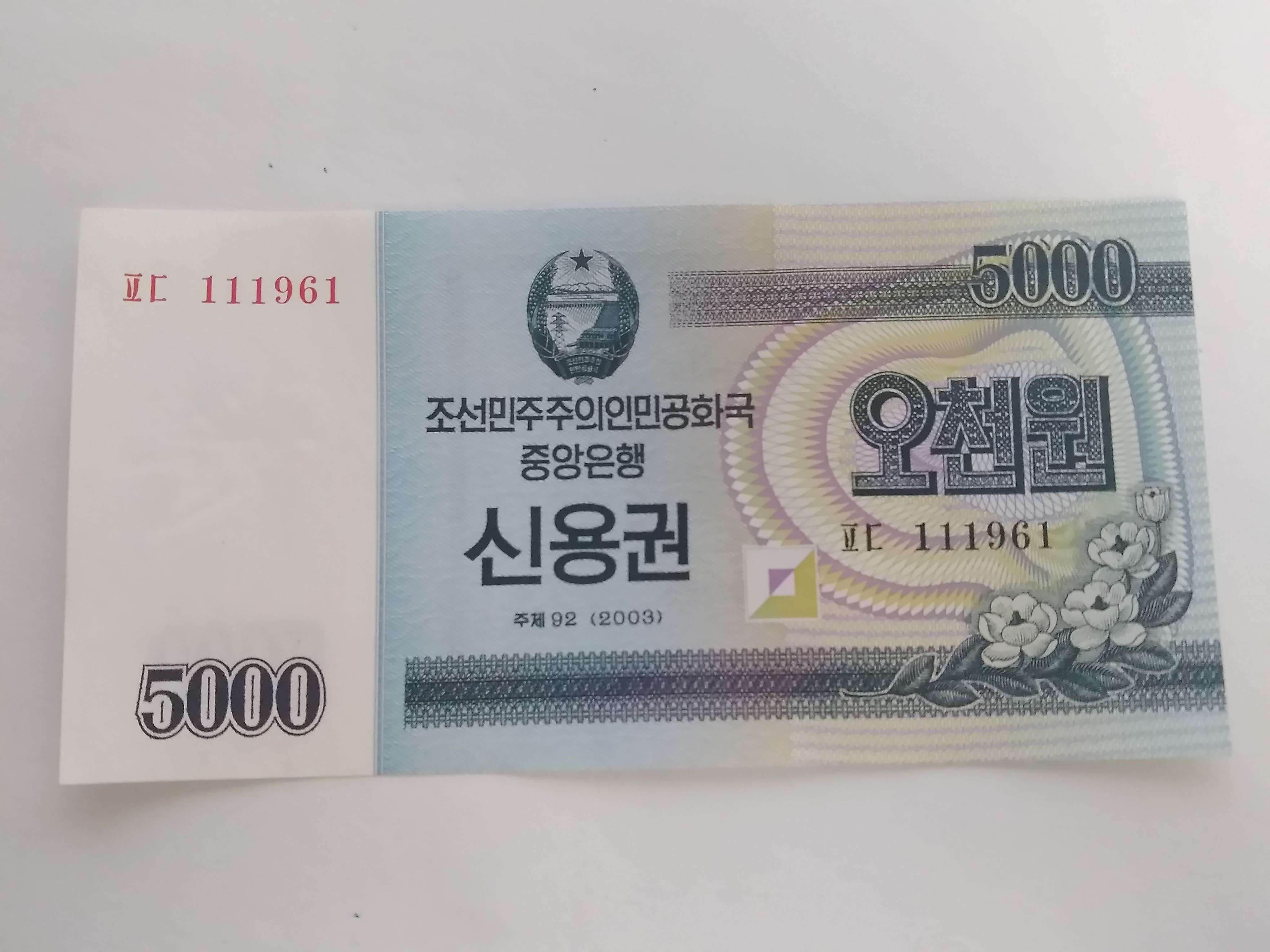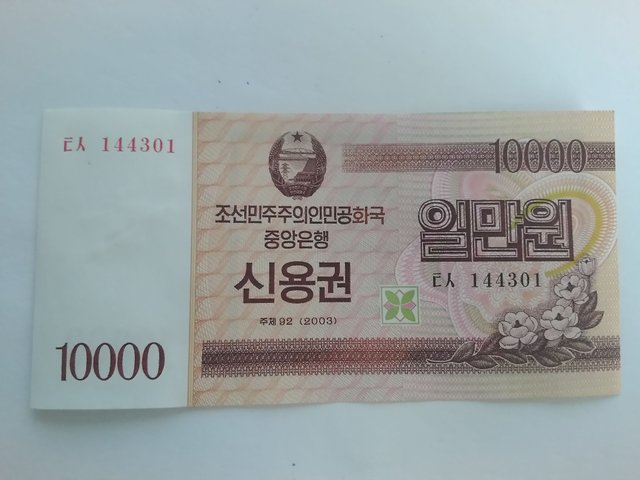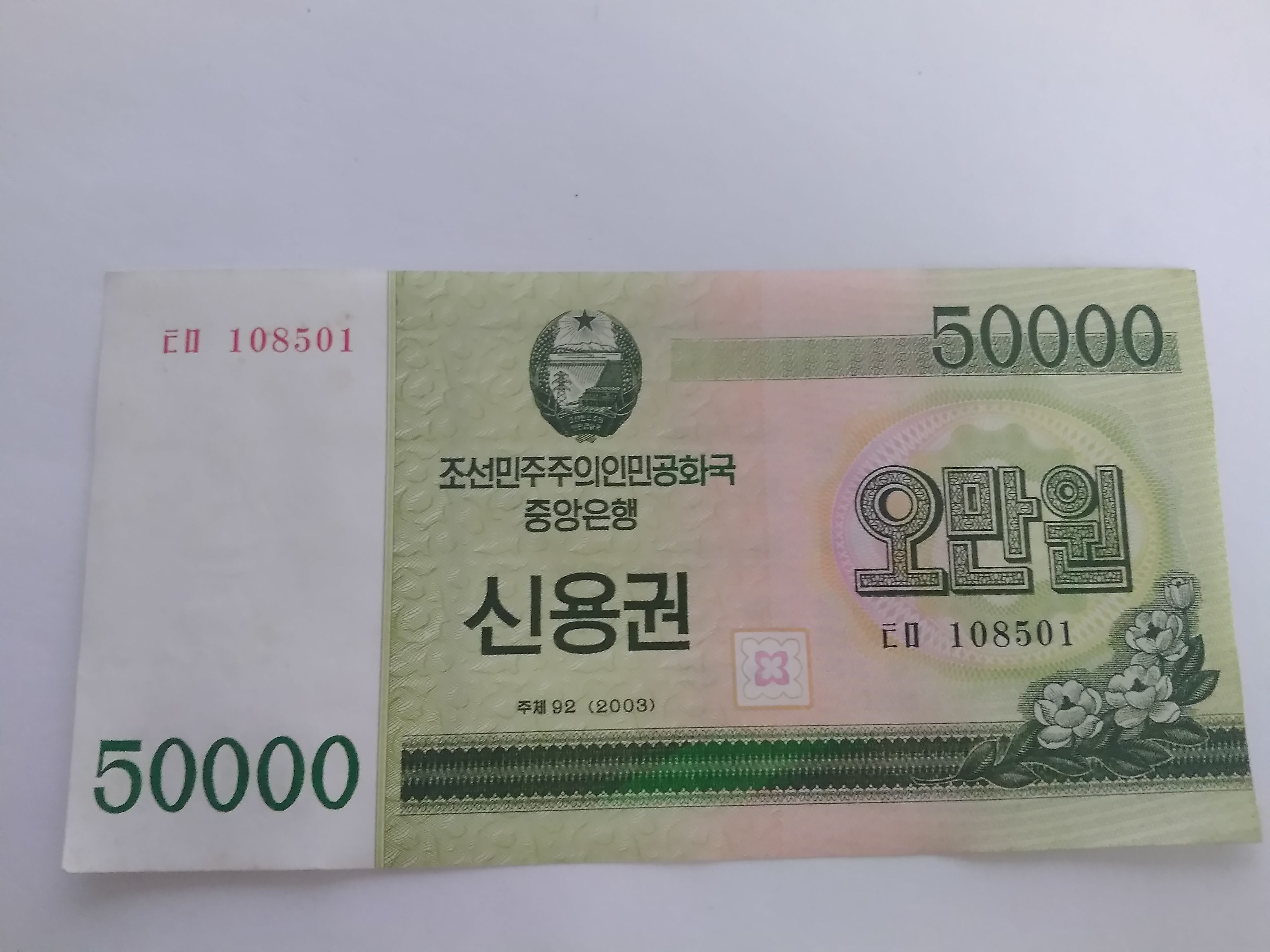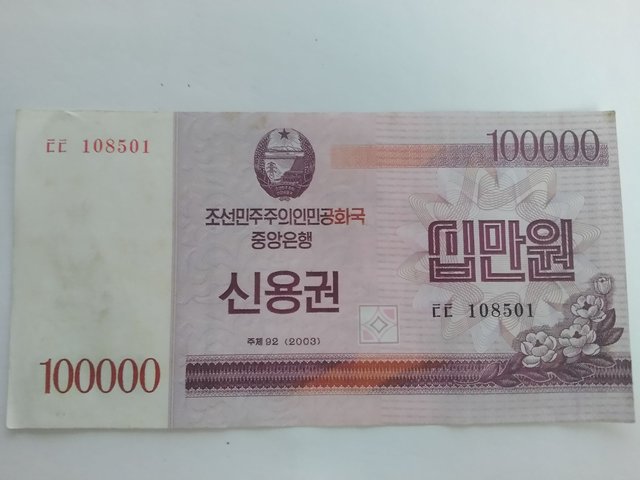Banknotes of the Juche type, part 2
Hello, and welcome back to the second installment of Banknotes of the Juche type, wherein I briefly discuss my inveterate, insatiable need to get North Korean banknotes. Or, other banknotes, which I will expound upon later. But let's get to the more rare aspect of banknotes issued there.
There was a time before the planned redenomination, sometime between 2004 and 2009, of dropping a couple zeroes off of the notes and hopefully aligning the people's economy with that of the South Koreans. Unfortunately, with the crumbling infrastructure, intense sanctions and what-not, these came in the form of savings bonds. Multiple revolts happened in regards to this redenomination and initially most savings the Norks had were almost entirely wiped out. Of course, they thought of a way around it. Here are the extremely rare and often uncollected issues of savings bond won:
The deep blue type and microprinting of this 5000-won note, the smallest in the series, give this away. On the back of each note is a standard form with terms of use.
With translation, they read "Credit rights can be purchased or transferred at any central banking institution. No reissue will be granted if this note is lost. This bond gains 4 percent per year on 1/1, which will be paid by the Central Bank."
On the reverse are also spaces for banks and holders to write their information down, date of issue and acceptance, and so forth. I did not take pictures of the backs because they all say the same thing, except with different colors.
Again, most people won't even find these even if they do go to the isolated country - these are largely intra-bank deposits in savings bond form. No one has ever said anything about the 4% clause, and to be frank, 4% each year on these notes is negligible, if not as bad as interest here.
The strange thing about these notes is that they come in only two sizes, and they are quite nonstandard for common denominations. Comparisons of the 5000-won note leave it as about as wide as the dollar bill, but about a finger's width short of reaching the length. The 5000 and 10000-won notes have the Chollima monument as a watermark.
What were simple guilloche designs for the 5000 and 10000 have now given way to more diapered textures, nearly the same type as the 1992 1-won note. Each note also features a different square, close to the lower central feature. The green and peach colored 50,000 won note is arguably unusual but nothing like the final denomination . . .
. . . the hundred-thousand (ten-myriad) won note, easily the highest denomination on the Korean peninsula. This example was unfortunately left in a bad area, and some of them contain permanent stains and smudges, even the purple ink having stains from other blocks. The five-myriad and ten-myriad notes contain the Juche Tower motif as watermarks, clearly a conscious design choice otherwise enforced.
I neglected to mention in the first installment of this piece that all my notes are indeed genuine, I have checked for watermarks and closely examined all the microprinting. But there was an unconscious omission, the types of watermarks being used. The 1- and 200-won note contain the Chollima monument, while the 100 and 5000-won banknote contain the Arch of Triumph monument.
Once again, thanks for indulging my obsession, I'll have a post ready for your edification in a little while.




Congratulations @igarashi! You received a personal award!
Click here to view your Board
Congratulations @igarashi! You received a personal award!
You can view your badges on your Steem Board and compare to others on the Steem Ranking
Vote for @Steemitboard as a witness to get one more award and increased upvotes!